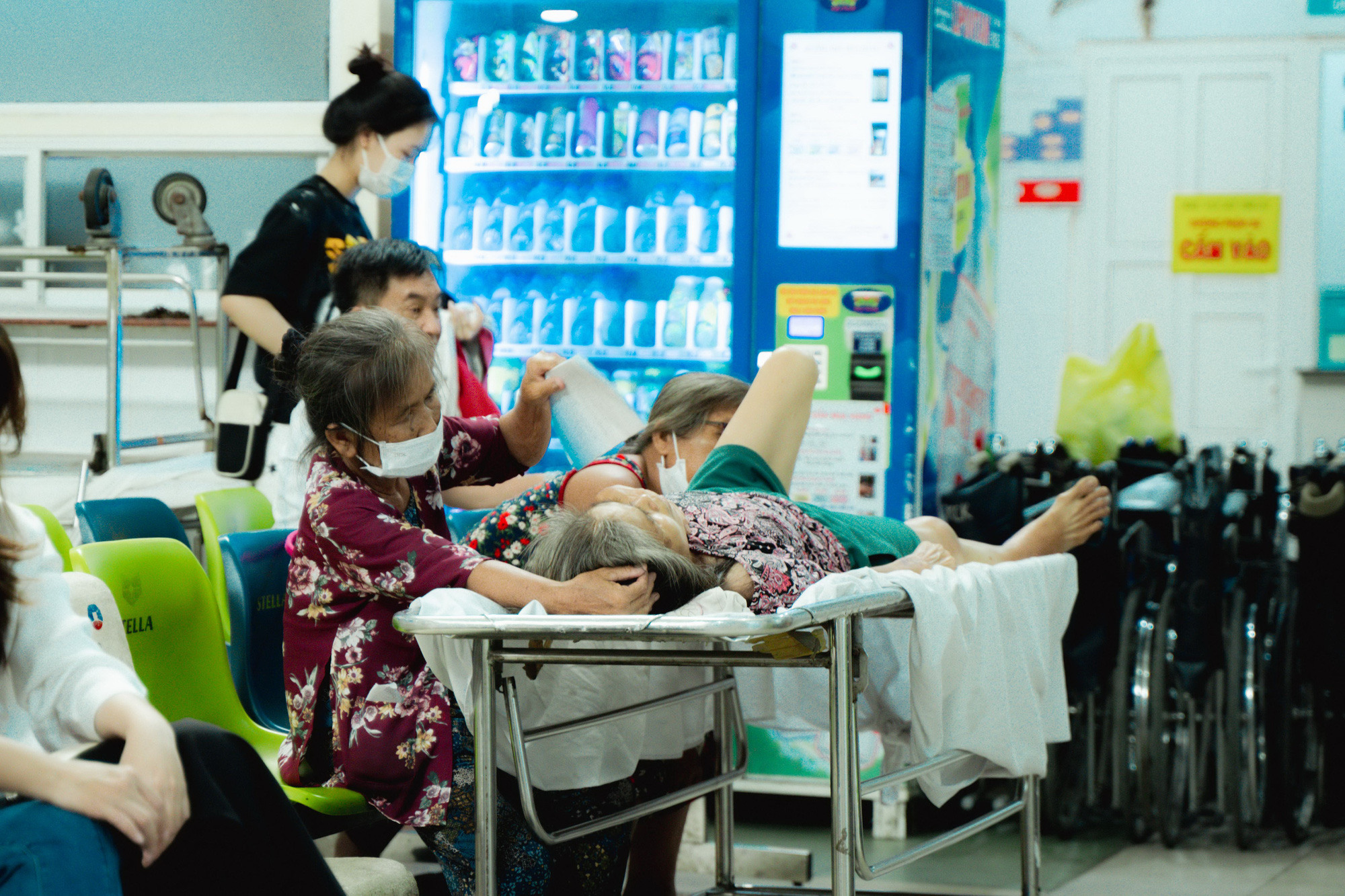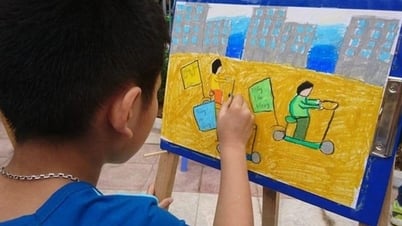The demand for hiring caregivers in hospitals is increasing, especially for elderly patients and those who are hospitalized for a long time. People in this profession need more attention.

For families with few people and elderly people without children, patient care services are really necessary - Photo: THANH HIEP
I went to the hospital in Ho Chi Minh City to visit my mother and met a woman who was taking care of an 80-year-old man. I heard that his hometown is Ha Tinh , his children are in this city but because they are busy, no one can take care of him.
Her daily job is to take care of the old man, from helping him, preparing meals, washing clothes, taking him to the doctor for x-rays, changing diapers, cleaning him... like a grandchild in the house.
Her hometown is in a province in the Mekong Delta, she has been taking care of the elderly in the hospital for over 8 years. Her current income from taking care of the old man is 500,000 VND/day.
In addition, she took on the job of pushing a wheelchair to take the woman in the next room to physical therapy, earning an additional 70,000 VND per day. She said earning over 15 - 20 million VND per month is normal for this job.
If this hospital does not have patients to hire, she can find work at another hospital. People in this profession can earn better income by taking on many patients at the same time, but she loves taking care of the elderly. In addition to being familiar with the job, she also has feelings, taking care of elderly patients is like taking care of her own grandparents or parents.
In this hospital, there are other people who do the same job as her. Her income sometimes goes up and sometimes down depending on the condition of the patient and the number of patients she takes care of, but she is rarely "unemployed".
She did not study medicine, but fell in love with this profession after a long period of being a patient in Ho Chi Minh City. Some of her friends also follow this profession in other hospitals.
Another time, I went to visit my mother in the hospital with a broken bone. In broad daylight, I saw a woman wearing pajamas (the kind of clothes worn in the countryside) snoring loudly in the aisle next to the patient’s bed. People said she was a caregiver, staying up all night to catch up on sleep…
She goes everywhere in the hospital, she knows everyone, every department is like her "home", she is quick on her feet all day.
Patients who ask her for a day or a week, she accepts a part of the work or a full package of care. Poor families and old people without children rely on people like her.
This service is not new but the demand is increasing, now there is also an expansion of the connection between the specialists in caring for patients between hospitals. There is a group of familiar "colleagues" who share the work together, it is hard and tiring but the income is good.
They are familiar faces, "an indispensable part" of the hospital. Although there are still many things that are not as expected, the reality of life shows that there is a need for a team of professional, skilled caregivers, especially those who care for elderly patients.
The income from this job is not low, but the health problems of those working in this profession are something that cannot be ignored. Taking care of patients day and night is hard work, knowing how to buy food and supplies, running paperwork for patients requires resourcefulness, knowledge and other skills.
Practicing Certificates and More
I think of the team of properly trained caregivers who take care of patients, especially elderly patients. They also need a license or professional degree, why not? Why are caregivers usually women who accept to live in hospitals all year round? Young people can do this job too, even better because they are young and healthy.
It is also important to consider the possibility of working in shifts (unless the patient requests to be on duty) so that they can go home to rest. They need medical knowledge to do their job better and support treatment. They also need medical care when working regularly in an environment prone to infection.
Source: https://tuoitre.vn/nen-chuyen-nghiep-nghe-cham-soc-benh-nhan-20241127101754918.htm





![[Photo] Award ceremony for works on studying and following President Ho Chi Minh](https://vphoto.vietnam.vn/thumb/1200x675/vietnam/resource/IMAGE/2025/5/20/a08ce9374fa544c292cca22d4424e6c0)























![[Photo] Vietnamese shipbuilding with the aspiration to reach out to the ocean](https://vphoto.vietnam.vn/thumb/1200x675/vietnam/resource/IMAGE/2025/5/20/24ecf0ba837b4c2a8b73853b45e40aa7)



























































![[VIDEO] - Enhancing the value of Quang Nam OCOP products through trade connections](https://vphoto.vietnam.vn/thumb/402x226/vietnam/resource/IMAGE/2025/5/17/5be5b5fff1f14914986fad159097a677)
Comment (0)